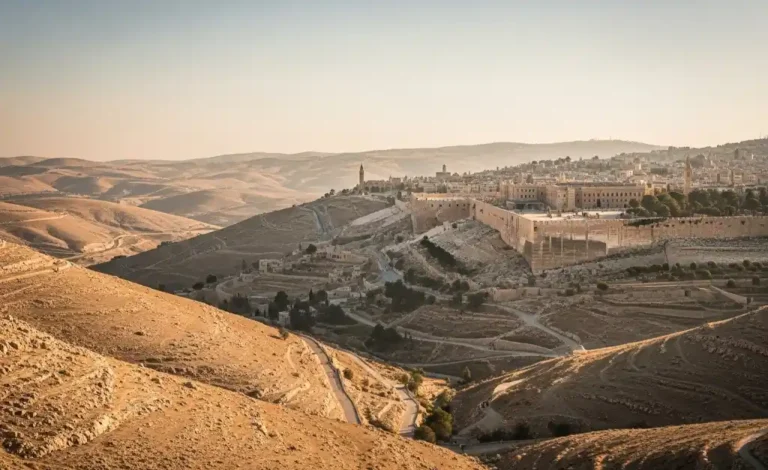Jordan, a land of ancient wonders and vibrant culture, is home to the Hashemite royal family, a dynasty whose legacy intertwines with the nation’s rich history and tourism allure. From Petra’s rose-red cliffs to Amman’s bustling markets, the royal family’s influence enhances Jordan’s appeal as a must-visit destination. This article delves into the Hashemite monarchy’s story, answering key questions while inviting you to experience Jordan’s regal charm through immersive Jordan Group Tours.
Does Jordan Still Have a Royal Family?
Jordan thrives as a constitutional monarchy, led by the Hashemite royal family. King Abdullah II bin Al-Hussein, reigning since 1999, guides the nation with a vision that blends tradition and modernity. The royals are not just figureheads; they actively promote Jordan’s cultural heritage, making it a beacon for travelers. Visiting royal sites like Raghadan Palace in Amman, accessible during special events, offers a glimpse into this enduring legacy, perfect for those exploring via Jordan Group Tours.
How Is the King of Jordan Related to Muhammad?
The Hashemites trace their lineage to the Prophet Muhammad through his daughter Fatimah and her husband Ali ibn Abi Talib. King Abdullah II is a 41st-generation descendant via Hasan ibn Ali, a connection that imbues the family with religious prestige. This heritage draws pilgrims and history enthusiasts to Jordan’s sacred sites, such as the Baptism Site of Jesus at Bethany Beyond the Jordan, a highlight of many luxury Jordan tours.
Can a Girl Become Queen in Jordan?
Jordan’s constitution restricts the throne to male heirs, meaning a woman cannot become queen regnant. Queen Rania, King Abdullah II’s wife, holds the title of queen consort, captivating global audiences with her advocacy for education and women’s rights. Her influence inspires visitors to explore Jordan’s progressive spirit, from cultural festivals in Amman to community projects in Wadi Rum, best experienced through curated Jordan tours.
Is the Hashemite Family Sunni or Shia?
The Hashemites are Sunni Muslims, reflecting Jordan’s majority (95% Sunni). Their descent from the Prophet’s family aligns with Sunni traditions, historically tied to their role as sharifs of Mecca. This religious harmony enhances Jordan’s appeal as a safe, welcoming destination for travelers of all faiths, where you can explore Islamic heritage sites like the King Abdullah I Mosque on a Jordan Group Tour.
Is Egypt Shia or Sunni?
Egypt, a neighbor to Jordan, is predominantly Sunni, with 90% of its population following Sunni Islam and 10% mostly Coptic Christians. While Egypt lacks a monarchy, its Sunni heritage complements Jordan’s, inviting travelers to compare their cultural tapestries. Jordan’s royal narrative, however, adds a unique layer to its tourism, best uncovered through luxury Jordan tours.
Are Shias Allowed in Jordan?
Jordan embraces religious tolerance, allowing Shias, a small minority, to practice freely under constitutional protections. The Hashemite commitment to coexistence makes Jordan a model of harmony, inviting visitors to experience its inclusive spirit. Discover this unity in Jerash’s ancient ruins or Aqaba’s vibrant coral reefs, accessible via Jordan tours.
Did Princess Iman Have a Baby?
Princess Iman bint Abdullah, daughter of King Abdullah II and Queen Rania, married Jameel Alexander Thermiótis in 2023. As of June 2025, no verified sources confirm she has had a baby. Her wedding, a celebration of Jordanian tradition, showcased the nation’s hospitality, inspiring visitors to join Jordan Group Tours to witness such cultural splendor.
How Rich Is the Jordanian Royal Family?
Estimating the royal family’s wealth is complex, with King Abdullah II’s net worth speculated at $750 million to $1.5 billion, including palaces and investments. Their resources support Jordan’s tourism infrastructure, from preserving Petra to promoting eco-lodges in Dana Biosphere Reserve. Travelers can explore these treasures on luxury Jordan tours, experiencing the royal family’s commitment to sustainable tourism.
Is the Jordanian Royal Family Muslim?
The Hashemites are Sunni Muslims, their lineage from the Prophet Muhammad reinforcing their spiritual leadership. This heritage elevates Jordan’s status as a cultural hub, where visitors can marvel at Islamic art in Amman’s museums or pray at historic mosques. Immerse yourself in this legacy with a Jordan Group Tour.
Jordanian Royal Family Tree
The Hashemite family tree is a tapestry of history:
- King Hussein I (1935–1999): Reigned for 47 years, father of 12 children.
- King Abdullah II (b. 1962): Current king, married to Queen Rania.
- Queen Rania (b. 1970): Global advocate for social causes.
- Crown Prince Hussein (b. 1994): Heir apparent, a youth icon.
- Princess Iman (b. 1996), Princess Salma (b. 2000), Prince Hashem (b. 2005): The next generation.
This lineage enriches Jordan’s narrative, inviting travelers to explore royal history in Amman’s Royal Automobile Museum on Jordan tours.
King Hussein’s Jordanian Royal Family Tree
King Hussein’s legacy shapes the modern monarchy:
- Sharifa Dina (m. 1955–1957): Daughter, Princess Alia.
- Princess Muna (m. 1961–1971): King Abdullah II and others.
- Alia Toukan (m. 1972–1977): Princess Haya, Prince Ali.
- Queen Noor (m. 1978–1999): Prince Hamzah, Prince Hashim, and others.
His vision lives in Jordan’s tourism, from Madaba’s mosaics to the Dead Sea’s serenity, best explored via luxury Jordan tours.
Jordan Royal Family Net Worth
The royal family’s estimated $750 million to $1.5 billion wealth supports Jordan’s development, including tourism projects like the Jordan Trail. Their investments ensure visitors enjoy world-class experiences, from glamping in Wadi Rum to dining in Amman’s souks. Discover this opulence on a Jordan Group Tour.
Queen Noor and the Jordanian Royal Family
Queen Noor, born Lisa Halaby, married King Hussein in 1978, bringing global attention to Jordan. Her humanitarian work, through the Noor Al-Hussein Foundation, promotes cultural preservation, enhancing Jordan’s tourism appeal. Her children, including Prince Hamzah, continue her legacy, inviting travelers to explore Jordan’s heart on Jordan tours.
Where Does the Jordanian Royal Family Live?
The royals reside primarily in Amman, using palaces like:
- Raghadan Palace: For official ceremonies.
- Husseiniya Palace: King Abdullah II’s base.
- Al-Hummar Palace: Private residence.
Queen Noor splits time between Jordan and international homes. These sites, often featured in tourism itineraries, draw visitors to Amman’s royal heritage via luxury Jordan tours.
Why the Hashemites Make Jordan a Must-Visit
The Hashemite royal family’s legacy transforms Jordan into a living museum of history and hospitality. Their commitment to preserving sites like Petra and promoting cultural festivals makes every visit unforgettable. Whether you’re floating in the Dead Sea or hiking the Jordan Trail, the royal influence is palpable, urging you to book a Jordan Group Tour today.
Embark on Unforgettable Jordan Tours
Jordan’s royal heritage is more than history—it’s an invitation to explore a land of wonders. From the Hashemite’s sacred lineage to their modern vision, every corner of Jordan tells a story. Don’t wait to experience this magic. Join a Jordan Group Tour or indulge in luxury Jordan tours to uncover the kingdom’s treasures, from Petra’s ancient splendor to Amman’s vibrant soul. Book now and let Jordan’s royal legacy inspire your next adventure!




